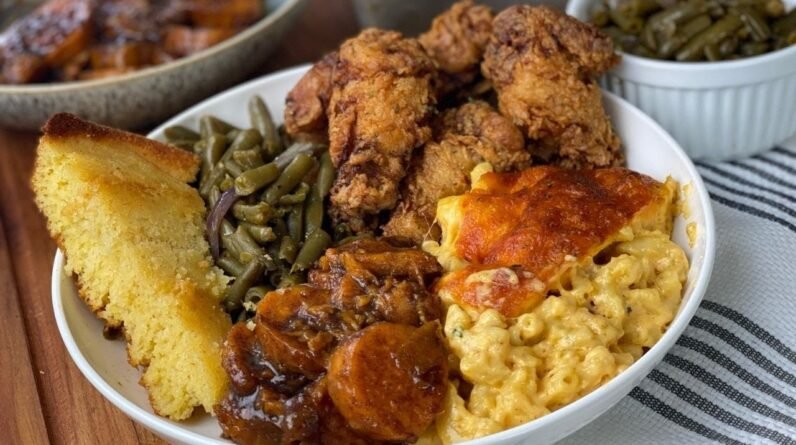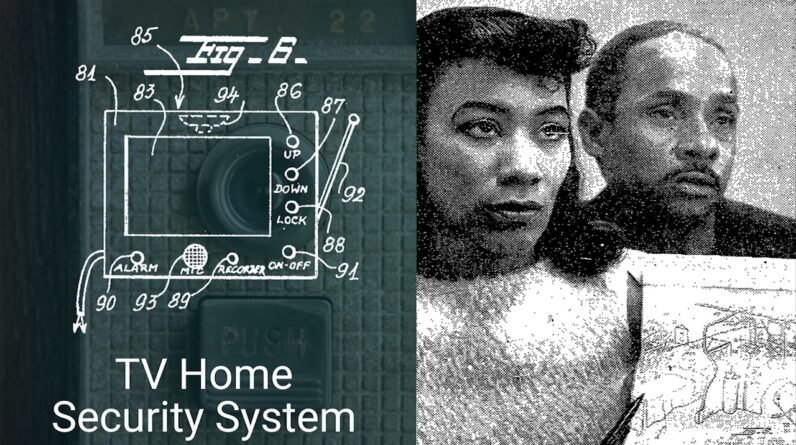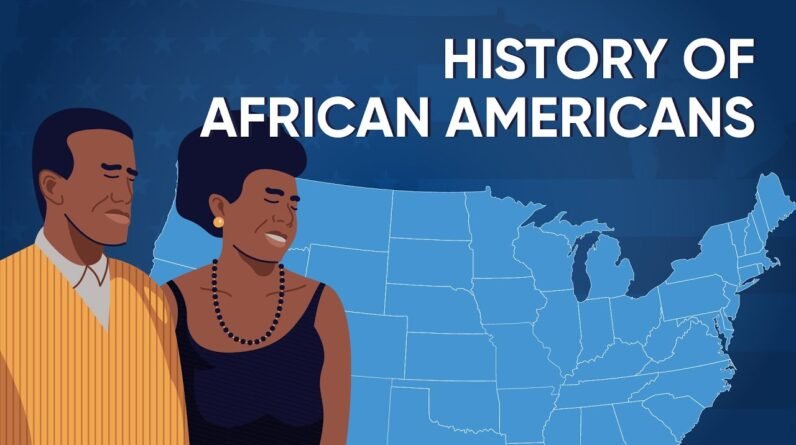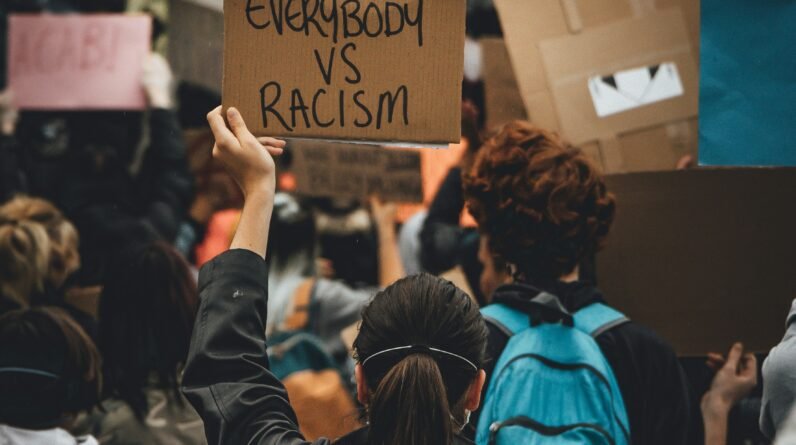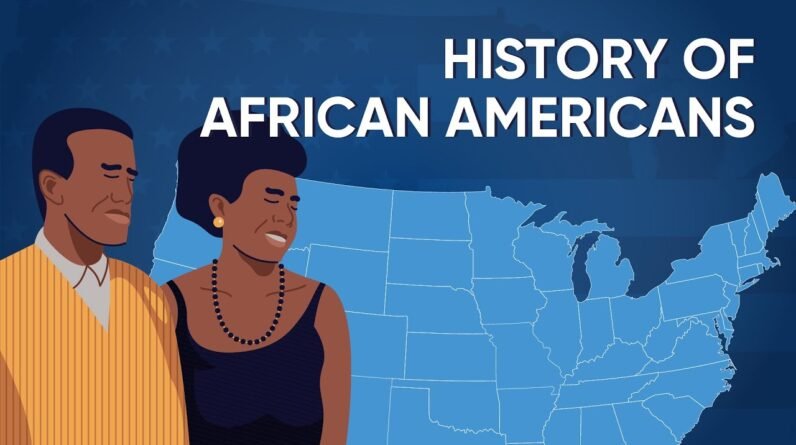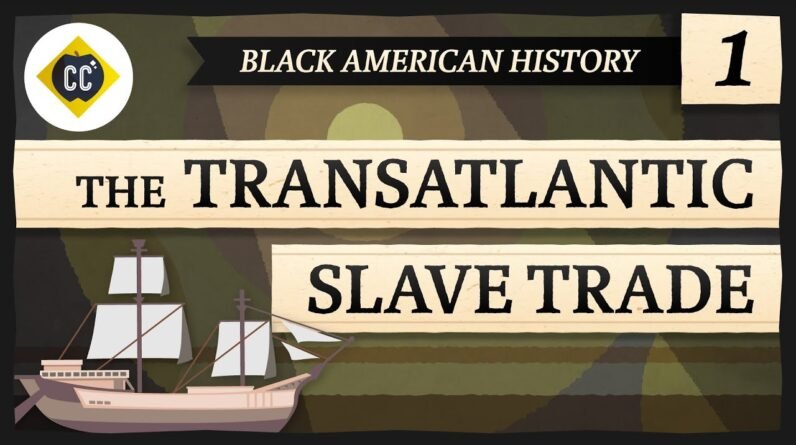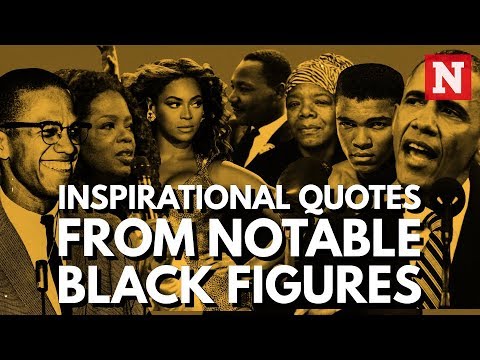
African American Stories
African American Stories: If you’re ready to immerse yourself in the rich and captivating world of African American stories on television, get ready for an incredible journey. From thought-provoking dramas to side-splitting comedies, this article will take you through a kaleidoscope of shows that celebrate the experiences, struggles, and triumphs of African Americans. Get ready to laugh, cry, and feel inspired as you discover the diversity and brilliance of African American storytelling on TV.
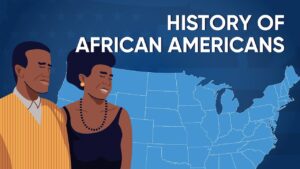
Historical African American TV Shows
Early African American Sitcoms
In the early days of television, African American representation was scarce. However, a few notable sitcoms paved the way for future shows to come. In the 1950s, “Amos ‘n’ Andy” became the first African American sitcom to air on television. While it received both praise and criticism for its portrayal of African American characters, it marked a significant milestone in the representation of black individuals on TV. Other early shows like “Beulah” and “The Nat King Cole Show” also featured African American leads and began to break barriers in the industry.
The Impact of ‘The Cosby Show’
“The Cosby Show,” which aired from 1984 to 1992, brought about a groundbreaking shift in African American representation on television. Starring Bill Cosby and Phylicia Rashad, the sitcom depicted an upper-middle-class African American family living in Brooklyn, New York. It handled diverse storylines, humor, and heartfelt moments, which resonated not only with African American viewers but with people of all backgrounds. “The Cosby Show” is often credited for its positive portrayal of African Americans and for breaking stereotypes.
Groundbreaking Shows in the 1990s
The 1990s witnessed a rise in African American representation on television with shows like “Fresh Prince of Bel-Air,” “A Different World,” and “Living Single.” These sitcoms explored the nuances of African American culture and tackled important social issues such as race, identity, and relationships. “Fresh Prince of Bel-Air” showcased the life of a young African American from West Philadelphia living in an affluent neighborhood, highlighting themes of class and racial prejudice. “A Different World” centered around students at a historically black college, while “Living Single” delved into the lives of four successful African American women living in Brooklyn. These shows captivated audiences and played a significant role in expanding the visibility of African American experiences on TV.
Exploring African American History on Television
Television has also provided a platform to explore and celebrate African American history. Mini-series and documentaries such as “Roots” and “Eyes on the Prize” shed light on the struggles and triumphs of African Americans throughout history. “Roots,” in particular, captivated viewers nationwide with its powerful portrayal of the African American experience, tracing the journey of one family from enslavement to freedom. By showcasing these stories, television has played a crucial role in educating audiences and fostering understanding of African American history.
Contemporary African American TV Shows
Diverse Storytelling in Drama Series
In recent years, the television landscape has seen a surge of diverse storytelling through drama series. Shows like “Scandal,” “How To Get Away With Murder,” and “Atlanta” have gained critical acclaim for their compelling narratives and nuanced portrayals of African American characters. These shows tackle a range of issues, including politics, law, and social injustice, while also highlighting the complexities of race and identity. Through their compelling storytelling, these dramas have redefined the representation of African Americans on television.
Comedy Shows Celebrating Black Culture
Comedy has also been a powerful tool for celebrating African American culture and creating a sense of community. Shows like “Black-ish,” “Insecure,” and “The Chappelle Show” have brought laughter and insight into the lives of African American individuals and families. “Black-ish” explores the dynamics of an affluent African American family trying to retain their cultural identity in a predominantly white neighborhood, while “Insecure” offers a witty and authentic portrayal of the modern-day black experience. “The Chappelle Show” pushed boundaries and defied expectations, using humor to address social and political issues in an unapologetic manner.
Intersectionality and Representation
One of the significant strides in contemporary African American TV shows is the intersectionality and representation of diverse voices. Shows like “Pose,” which centers around the ballroom culture in the LGBTQ+ community, and “Dear White People,” which tackles the experiences of black students at a predominantly white Ivy League university, showcase the complexity and richness of African American stories. By highlighting the intersectionality between race, sexuality, and gender, these shows contribute to a more inclusive representation of African American experiences on television.
Exploring Social Issues through Television
Television has emerged as a powerful medium for exploring social issues and sparking conversations. Shows like “Black Mirror,” “When They See Us,” and “13th” delve into topics such as technology, criminal justice, and systemic racism. “When They See Us” and “13th,” both created by Ava DuVernay, shed light on the injustices faced by African Americans within the criminal justice system. These shows not only entertain but also educate and challenge viewers to confront uncomfortable truths. By tackling these social issues head-on, television continues to serve as a platform for advocacy and change.
African American Reality TV Shows
The Popularity of Reality TV
Reality television has gained immense popularity over the years, and African Americans have made substantial contributions to the genre. Shows like “The Real Housewives of Atlanta,” “Love & Hip Hop,” and “Basketball Wives” have attracted large audiences and become pop culture phenomena. By showcasing the personal lives, relationships, and conflicts of African American individuals, reality TV has provided a platform for diverse stories and experiences.
Representation and Misconceptions
While reality TV has provided visibility for African Americans, it has also faced criticism for perpetuating stereotypes and creating negative portrayals. Some argue that certain reality shows emphasize drama and conflict rather than showcasing the diverse range of African American experiences. However, it is important to remember that reality TV is a reflection of real-life situations, and multiple perspectives exist among the African American community. By engaging in discussions around representation, we can work towards a more accurate and nuanced portrayal of African Americans on these shows.
Reality Shows Empowering African Americans
Despite the critiques, reality TV has also empowered African Americans by providing opportunities for entrepreneurship, personal growth, and community building. Shows like “Shark Tank” and “Project Runway” have allowed African American entrepreneurs and fashion designers to showcase their talent and gain exposure. These shows have served as a launchpad for many individuals to build successful businesses and careers. Additionally, reality shows like “Iyanla: Fix My Life” and “Queer Eye” offer transformative experiences and guidance, empowering African American participants to overcome challenges and become their best selves.
Critiques and the Importance of Authenticity
Critiques surrounding reality TV often highlight the need for authenticity and responsible storytelling. It is crucial for producers and participants to navigate the fine line between entertainment and exploitation while representing African American experiences. By prioritizing authenticity and showcasing a range of stories and perspectives, reality TV has the potential to challenge stereotypes and provide a deeper understanding of African American culture and communities.
African American Talk Shows
The Legacy of African American Talk Shows
African American talk shows have played a significant role in shaping television history and cultural conversations. “The Oprah Winfrey Show,” which aired from 1986 to 2011, became a groundbreaking and influential talk show, not only for African Americans but for all viewers. Oprah Winfrey’s charisma, empathy, and ability to discuss a wide range of topics made her show a platform for positive change and personal growth. Other notable African American talk shows include “The Arsenio Hall Show,” “The Montel Williams Show,” and “The Wendy Williams Show,” each contributing their unique voices and perspectives to the talk show landscape.
Late-Night Shows and Political Commentary
Late-night talk shows have become an essential platform for humor, political commentary, and cultural discourse. African American hosts such as Trevor Noah on “The Daily Show” and Larry Wilmore on “The Nightly Show” bring their unique perspectives to the table, addressing social issues and current events through humor and satire. These shows provide valuable insight and engage viewers while reflecting the diversity and experiences of African Americans.
Daytime Talk Shows and Empowerment
Daytime talk shows have long been a space for empowerment, personal narratives, and self-help. African American hosts like Iyanla Vanzant on “Iyanla: Fix My Life” and Steve Harvey on “Steve” have provided guidance and support to viewers seeking to improve their lives. These shows tackle a range of topics, from relationships to mental health, giving voice to African American experiences and offering viewers tools for personal growth and empowerment.
Unfiltered Conversations with Black Hosts
African American talk show hosts offer unfiltered conversations that resonate with audiences across different backgrounds. Shows like “Red Table Talk,” hosted by Jada Pinkett Smith, Willow Smith, and Adrienne Banfield-Norris, provide a safe space for open discussions on topics such as mental health, relationships, and social issues. Through their candid narratives and diverse guests, these shows create a sense of community and foster dialogue, leaving a lasting impact on viewers.

Cult Classics and Memorable Characters
Influential Shows and Iconic Characters
Several African American TV shows have achieved cult classic status and brought forth iconic characters that have left a lasting impact on popular culture. “The Wire,” often hailed as one of the greatest television dramas of all time, explored the intricacies of Baltimore through its diverse cast of characters, including Jimmy McNulty, Omar Little, and Stringer Bell. Similarly, “Martin” showcased a talented and hilarious ensemble cast, with Martin Lawrence portraying unforgettable characters like Martin Payne and Sheneneh Jenkins. These shows and characters have become cultural touchstones, resonating with viewers of all backgrounds.
Breaking Stereotypes
African American TV shows have consistently defied stereotypes and offered nuanced portrayals of black characters. “The Jeffersons” challenged racial expectations by portraying an African American family who had achieved success and moved into an upscale neighborhood. “Black Lightning,” a superhero series, subverted stereotypes by presenting a complex African American hero struggling with family dynamics and social responsibilities. These shows have paved the way for a more accurate and multifaceted representation of African Americans on television.
Impactful Mini-Series and Anthologies
Beyond sitcoms and dramas, mini-series and anthologies have proven to be powerful vehicles for African American stories. “Roots” remains a groundbreaking and influential mini-series, highlighting the resilience and strength of African Americans throughout history. Recent anthologies like “American Crime Story: The People v. O.J. Simpson” and “Black Mirror” have also featured thought-provoking narratives that address race, justice, and the complexities of the human experience. These mini-series and anthologies offer a diverse range of stories, challenging audiences to confront uncomfortable truths and fostering a deeper understanding of African American experiences.
Rediscovering Classics
In recent years, there has been a renewed interest in rediscovering classic African American TV shows. Platforms like Netflix and Hulu have made it easier for audiences to access and appreciate iconic shows from the past. Series like “The Fresh Prince of Bel-Air,” “The Cosby Show,” and “A Different World” continue to resonate with viewers, offering a glimpse into the history of African American television and the timeless appeal of these beloved shows. By rediscovering these classics, audiences can appreciate the legacy and impact of African American TV on popular culture.
African American TV Personalities
The Rise of Oprah Winfrey
Oprah Winfrey’s rise to prominence is a testament to her talent, perseverance, and unwavering commitment to making a positive impact. From her start as a local news anchor to becoming one of the most influential media personalities in the world, Oprah has used her platform to uplift and empower diverse voices. Hosting “The Oprah Winfrey Show” for 25 years, she paved the way for authentic conversations, human connection, and personal growth. Oprah’s success has inspired generations of African American TV personalities, demonstrating the power of representation and the ability to effect change.
Notable News Anchors
African American news anchors have made significant strides in the industry, providing diverse perspectives and ensuring accurate representation in the media. Journalists like Gwen Ifill, Lester Holt, and Tamron Hall have broken barriers and become trusted sources of news. Their professionalism and dedication to reporting the truth have reshaped the landscape of broadcast journalism, showcasing the importance of African American voices in shaping public discourse.
Successful African American TV Producers
African American TV producers have been instrumental in bringing diverse stories to the screen and championing underrepresented voices. Shonda Rhimes, known for creating hit shows like “Grey’s Anatomy” and “Scandal,” has been a trailblazer in the industry, creating compelling narratives that center on complex African American characters. Ava DuVernay, the creator of “Queen Sugar” and director of notable films like “Selma” and “When They See Us,” has consistently pushed boundaries and given a voice to stories that were previously silenced. These successful African American TV producers have paved the way for increased representation and diversity in the industry.
Multi-Talented Performers
African American TV personalities have showcased their talents in various roles, from acting to hosting and producing. Performers like Donald Glover, Tracee Ellis Ross, and Tyler Perry have not only made significant contributions to African American representation on screen but have also excelled in multiple facets of the entertainment industry. Donald Glover’s critically acclaimed series “Atlanta” exhibits his immense talent as a writer, actor, and director. Tracee Ellis Ross’s portrayal of Rainbow Johnson on “Black-ish” has garnered widespread acclaim, while Tyler Perry’s extensive body of work showcases his versatility and entrepreneurial spirit. These multi-talented performers have continued to push boundaries and redefine success in the industry.
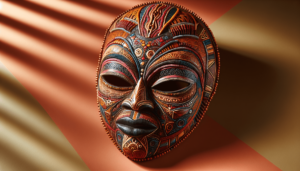
African American Children’s TV Shows
Educational Programs for Young Viewers
African American children’s TV shows have been instrumental in providing educational content that reflects the diverse experiences of young viewers. Shows like “Sesame Street,” “Reading Rainbow,” and “Doc McStuffins” have not only entertained children but also taught valuable lessons about diversity, inclusion, and empathy. These shows have fostered a love for learning while also promoting positive representation of African American characters, helping shape the perspectives of the youngest generation.
Teaching Diversity and Social Values
African American children’s TV programs focus on teaching diversity and social values at an early age. Shows like “Little Bill” and “The Backyardigans” highlight the importance of friendship, teamwork, and understanding. Through relatable characters and engaging narratives, these shows provide children with meaningful lessons that promote empathy, respect, and inclusivity. By featuring African American characters as role models, these programs offer positive representation for young viewers to identify with and learn from.
Inspiring Young Minds
African American children’s TV shows not only provide educational content but also inspire young minds to dream big and pursue their passions. “The Proud Family,” an animated series centered around an African American family, encourages children to embrace their uniqueness and celebrate their cultural heritage. “Dora the Explorer” incorporates bilingualism and problem-solving skills, promoting self-confidence and empowering young viewers to explore the world around them. Through these shows, African American children can see themselves represented in a positive and empowering light, fostering a sense of self-worth and ambition.
Iconic Characters and Animation
Animated series showcasing African American characters have become beloved by children and adults alike. “The Princess and the Frog” introduced the first African American Disney princess, Tiana, offering a role model of resilience, ambition, and determination. Shows like “The Magic School Bus” and “Arthur” have featured diverse characters that navigate various life lessons while promoting curiosity, learning, and friendship. These iconic characters and animations inspire imagination and create a space where African American children can see themselves represented in a positive and aspirational way.
African American TV Awards and Recognition
The Impact of the NAACP Image Awards
The NAACP Image Awards have been instrumental in recognizing and celebrating the achievements of African Americans in the entertainment industry. Established in 1967, the awards honor outstanding performance in film, television, literature, and music. The NAACP Image Awards have provided a platform to highlight diverse voices and stories, acknowledging the contributions of African American individuals and fostering a sense of pride within the community.
Celebrating Excellence in TV
Primetime Emmy Awards have become increasingly inclusive and have recognized African American excellence in the world of television. From groundbreaking shows like “The Cosby Show” and “Roots” to recent successes like “Insecure” and “Watchmen,” African American actors, writers, directors, and producers have been acknowledged for their outstanding contributions. The recognition from prestigious awards such as the Primetime Emmy Awards continues to affirm the importance and impact of African American representation on TV.
Representation in Primetime Emmy Awards
While progress has been made, there is still work to be done regarding equal representation for African Americans at the Primetime Emmy Awards. The #OscarsSoWhite movement shed light on the lack of diversity not only in film but also in television. Although some African American actors and creators have been recognized with nominations and awards, there is a need for sustained and increased representation across all categories. This ongoing challenge highlights the importance of continued advocacy and support for African American talent within the industry.
Critiques and Ongoing Challenges
The lack of diversity and representation in award ceremonies like the Primetime Emmy Awards exposes the ongoing challenges faced by African Americans in the television industry. The omission of deserving African American talent from nominations and recognition reflects systemic biases and serves as a reminder of the work that still needs to be done. It is crucial for the industry to address these challenges head-on and continue to promote and uplift African American voices and stories.
The Influence of African American TV Shows
Shaping Cultural Identity
African American TV shows have played an influential role in shaping cultural identity and dispelling stereotypes. By showcasing diverse narratives, these shows have provided a platform for African Americans to see themselves represented in positive and authentic ways. The authentic portrayal of African American stories on television has contributed to the recognition and celebration of black culture, while also challenging preconceptions and stereotypes held by the wider society.
Impact on Mainstream Media
The impact of African American TV shows extends beyond their immediate viewership, influencing mainstream media and cultural conversations. Shows like “The Cosby Show” and “The Fresh Prince of Bel-Air” captivated audiences worldwide, challenging the notion that the African American experience was limited to certain stereotypes. These shows paved the way for increased representation and diversity in mainstream media, inspiring other creators to tell authentic and inclusive stories.
Inspiring Future Generations
African American TV shows have inspired future generations of creatives, actors, and storytellers, offering a blueprint for success and representation. Young aspiring talent can see themselves reflected on screen, giving them the confidence to pursue their dreams and make a difference in the entertainment industry. The influence of African American TV shows can be seen in the increasing diversity and representation behind the camera, with more opportunities for African American directors, writers, and producers.
Challenges and Future Opportunities
While progress has been made, there are still challenges and opportunities for improvement in the realm of African American TV shows. Continued efforts are needed to address systemic biases, provide equal opportunities, and ensure authentic representation across all genres and platforms. As the television landscape evolves, it is essential to create spaces for diverse voices, to tell stories that reflect the full spectrum of the African American experience, and to amplify underrepresented narratives.
FAQs:
What is the most famous African-American?
The mantle of the most famous African-American is a weighty one, adorned by luminaries across various fields. However, one name stands tall amidst this constellation of greatness – Martin Luther King Jr. Revered as a champion of civil rights and nonviolent activism, King’s legacy reverberates through generations, symbolizing the epitome of courage and conviction in the face of adversity.
What is the story of African Americans?
The story of African Americans is a narrative of triumph over adversity, resilience amidst oppression, and the relentless pursuit of equality. From the shackles of slavery to the corridors of power, African Americans have carved out a path paved with sacrifice, struggle, and unyielding determination. It is a story of resilience in the face of systemic injustice, creativity born out of adversity, and a relentless quest for freedom and equality.
What is the most inspiring story from Black History Month?
Amidst the tapestry of African-American history, there exists a myriad of inspiring tales that illuminate the path towards progress and justice. Yet, one story that resonates deeply during Black History Month is that of Rosa Parks. Her act of defiance, refusing to yield her seat on a segregated bus, ignited the flames of the civil rights movement, sparking a wave of resistance that reverberated across the nation. Parks’ quiet strength and unwavering resolve serve as a timeless reminder of the power of individual courage to catalyze collective change.
What are the biggest moments in African American history?
The annals of African American history are punctuated by pivotal moments that have reshaped the social, political, and cultural landscape of America. From the abolition of slavery to the landmark Brown v. Board of Education ruling, these moments represent seismic shifts in the struggle for equality and justice. The election of Barack Obama as the first African American president of the United States stands as a watershed moment, symbolizing the culmination of centuries of struggle and the promise of a more inclusive future.
Conclusion
African American TV shows have left an indelible mark on television history, challenging stereotypes, and expanding the representation of black voices and stories. From early trailblazers like “The Cosby Show” to contemporary hits like “Black-ish” and “Insecure,” these shows have brought diverse narratives, social issues, and cultural celebrations to the forefront. While progress has been made, there are still challenges and opportunities for improvement in the industry. By amplifying underrepresented voices and providing authentic representation, African American TV shows continue to shape cultural identity, inspire future generations, and pave the way for a more inclusive and diverse television landscape.


